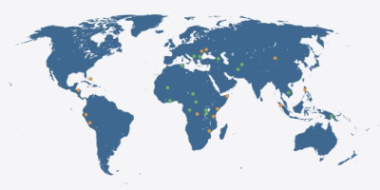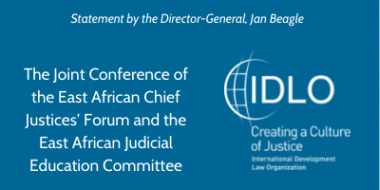New book helps judiciary and legal practitioners understand role of 'friend of the court', amicus curiae
(Nairobi, Kenya) August 25, 2017 – In preparation for potential electoral disputes in Kenya resulting from the 2017 elections, and to expand Kenya’s jurisprudence under the 2010 Constitution, a new tool on non-party participation in litigation to ensure fair, consistent and efficient rulings by the Judiciary was launched at an event today.
The legal concept of ‘friend of the court’, or ‘amicus curiae’, refers to the participation in litigation of individuals or organizations who are not party to a case but have a strong interest in its subject matter.













